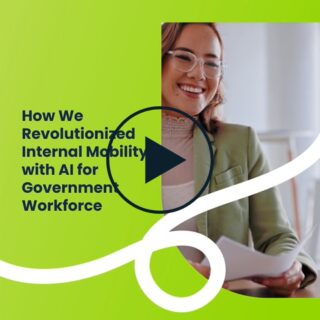Throughout 2018, we’ve covered some of the biggest compliance issues impacting employers. New legislation took effect around the world, courts weighed in on important issues and policy changes provided new resources to employers. As 2018 comes to a close, here are some of the biggest topics of the year.
GDPR
Commonly known as the GDPR, the EU General Data Protection Regulation requires businesses to protect the personal data and privacy of EU citizens for transactions that occur within EU member states. It took effect in May 2018.
CAN-SPAM, CASL and More
Laws around the world regulate how businesses and employers can interact with individuals through emails. While many marketing teams deal with these regulations every day, they also apply to talent acquisition teams that engage with candidates through email. Different countries have different laws, so in this post we covered the laws in the United States, Canada and Australia.
Salary History
In April, a federal appeals court in the U.S. ruled that salary history cannot be used to justify paying a woman less than a man for doing similar work under the Federal Pay Equity Act. The ruling in Rizo v. Fresno County Office of Education covers California, Oregon, Washington, Nevada, Arizona, Alaska, Hawaii, Idaho and Montana.
Worker Classification in the Gig Economy
Earlier this year, a California court ruling established a three-part test that provides the criteria an organization must meet for a person to be considered an independent contractor and not an employee.
Arbitration Agreements
Earlier this year, the U.S. Supreme Court ruled in favor of employers that use arbitration agreements that include class action waivers. In the event that an employee believes they have a lawsuit against an employer, this agreement provides that the dispute will be resolved through individual arbitration and never as a collective or class action.
Ban the Box
Earlier this year, the governor of Massachusetts signed into law An Act Relative to Criminal Justice Reform that makes several modifications to the state’s “ban the box” law. The law, which goes into effect in October 2018, adds additional restrictions about which criminal convictions an employer can consider and how employers can consider other convictions.
California Consumer Privacy Act of 2018
Earlier this year, the governor of California signed into law the California Consumer Privacy Act of 2018, one of the toughest data privacy laws in the U.S. It takes effect in 2020. The law is similar to the GDPR. The EU General Data Protection Regulation requires businesses to protect the personal data and privacy of EU citizens for transactions that occur within EU member states. The California law applies to most companies that collect the data of Californians, and it expands the definition of what is considered personal information, including behavioral and profiling data and professional and personal background data.
Department of Labor Office of Compliance Initiatives
In August, the U.S. Department of Labor announced the new Office of Compliance Initiatives to promote greater understanding of federal labor laws and regulations to help employers prevent violations.
The Department also announced two new websites aimed at providing compliance assistance:
- worker.gov provides information about worker’s rights and common workplace concerns
- employer.gov provides information about the responsibilities of job creators toward their workers and answers common questions
Sexual Harassment
Earlier this year, New York state signed the 2019 State Budget which updated the state’s sexual harassment laws. The legislation lays out several new requirements all employers must meet in their sexual harassment policies. As a part of the law, every employer in the state must provide sexual harassment prevention training that includes a set of minimum requirements.
Washington State’s Paid Family and Medical Leave Program
In 2017, Washington state passed legislation establishing a Paid Family and Medical Leave insurance program. Parts of that law take effect in 2019, and employers in Washington need to prepare. Beginning January 1, 2019, employers must be prepared to remit premiums and submit quarterly reports for the Paid Family and Medical Leave program, with the first quarterly premium remittance and reports due by April 30, 2019. Employees can begin taking benefits on January 1, 2020.
Compliance Corner is a feature on the PeopleScout blog. Understanding the patchwork of labor laws across the world is complicated, but it’s part of what we do best. If you have questions on the compliance issue discussed in this post, please reach out to your PeopleScout account team or contact us at marketing@peoplescout.com.




